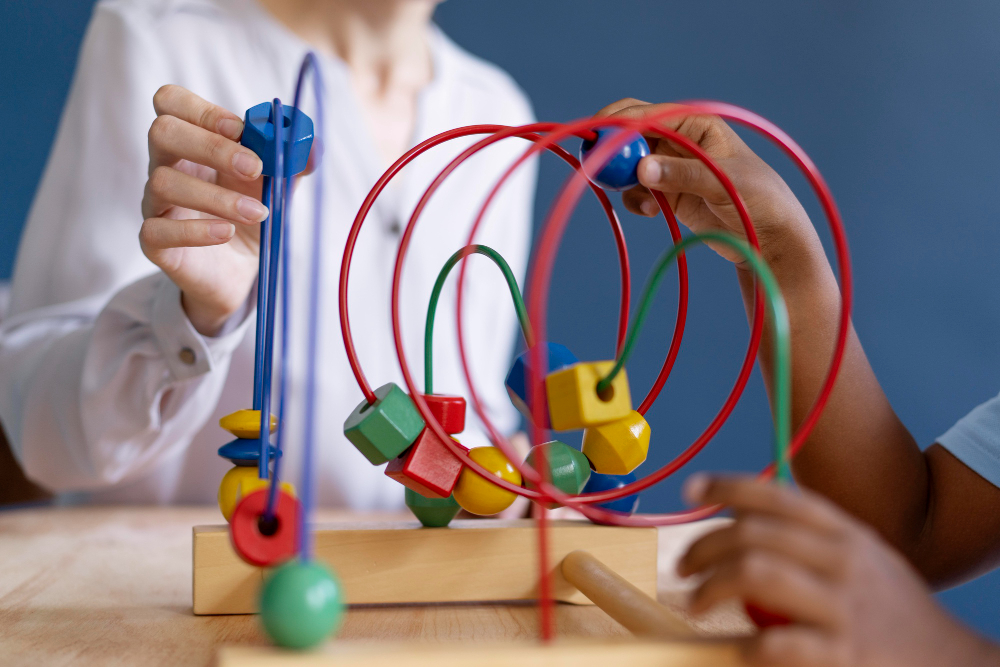In Australia, roughly 1 in 7 children aged 4 to 17 experienced a mental health disorder. It is pretty easy to spot the physical needs among children, but when it comes to mental needs, not quite so. However, a child’s mental health is just as vital as their physical health. Besides taking a toll on their school life, deteriorating mental health among children affects their daily lives as a whole.
Parents know their children best, thus making them an essential part of supporting every child’s mental health. As cliche as it sounds, love conquers all. In order for them to have a healthy outlook in life, parents should nurture them from a place of love. In addition, knowing that not all issues can be averted does not mean parents should give up. Here are some practical parenting tips that help improve a child’s mental health.
How to nurture a child’s mental health?
In this section, we are here to break down six essential child-care tips for enhancing children’s mental health. It is important to make them feel loved and supported at any stage of their life. Firstly, a safe environment goes a long way alongside these six ways we will be discussing below. They determine their future capability in coping with what is coming next in life.
-
Adopt patience brings awareness to a child’s mental health
Prioritising tolerance allows parents to put themselves in their children’s shoes. Listen attentively to their children’s needs before giving them your advice or getting upset. Furthermore, parents who are patient with children can pay closer attention to their little ones’ verbal and nonverbal cues. After that, awareness comes in, and mental health issues will uncover if there are any. And from there, parents can start applying personalised parenting approaches to improve their children’s mental health. In turn, kids will feel seen when parents are consciously aware of their emotional needs, bringing them a deep sense of emotional warmth and love.
-
Foster closeness and connections with an open heart
A strong family bond acts as a shield against mental health issues among children. A sense of belonging and closeness makes it more likely for the children to reach out comfortably. Parents who practice open and heart-to-heart conversations with kids creates a safe environment where they feel safe. Furthermore, parents should encourage social life outside of the home. Let the children go out and about, learn critical social skills, and build friendships at their own pace.
-
Create a structured routine and stick to it
For those who are unaware, children crave structure. They want to know what they will be doing next in their comfort zone. A significant adjustment in life, such as going to a new school in a new city that they are unfamiliar with, can be hard on them. This is when parents swoop in and give the support they need to assure children that they will be alright. Diminishing the sense of uncertainty among children brings them peace of mind. Parents should set a routine that helps kids get a hold of their sleeping patterns. All in all, a structured routine reduces the whole family’s stress and frustration.
-
Model good behaviour enhances a child’s mental health
Become the person you want your kids to look up to because children see and mirror what parents display. Parents who model healthy and positive behaviours set a stable foundation of how family members interact. Moreover, it shows the little ones how the family copes with challenges. And with that, children will learn how to deal with their emotions healthily. In fact, children will trust you with their issues too, when positivity is one of the elements that pushes the family to the right journey alongside love.
-
Reach out to get the help and support your family deserves
It is normal to feel overwhelmed when seeking the right support catered for your children’s mental health needs. However, prevention is better than cure, and if left untreated, it might lead to severe consequences for the whole family. Should parents learn about the possibility of their children struggling mentally, organisations and advocates are always ready to help from diagnosis. Reach out to paediatrician experts such as behavioural therapists, occupational therapists or speech therapists if needed. In addition, therapy sessions are now available virtually, and therapists are bringing therapy sessions via Telehealth. Paediatric therapy can be a great benefit not just for their little ones but also for the parents as well. And through remote mental health treatment, children can have therapy sessions from the comfort of their own familiar home accompanied by parents.
-
Establish a healthy lifestyle as a team
A healthy way of living enhances the mood, which leads to better mental health in a family. Parents should spend quality time with children and involve in beneficial yet fun activities as a family, bringing a sense of belonging among kids. Furthermore, cultivating healthy habits such as eating a balanced diet, staying physically active and getting adequate sleep is essential to their mental health too. This also ensures their bodies, minds and souls will be in good shape whilst incorporating healthy activities into their daily lives.

Strengthen a child’s mental health from a place of love
Physical health and mental health share the same significance in children’s life and growth journey. Early detection helps parents to support their children as early as possible. Knowing that reaching out does not make anyone weak, parents are advised to get help if needed for the sake of children’s wellbeing. Besides nurturing the little ones with love and respect, parents should model positive behaviours and healthy habits which their children will pick up in the household. And together as a family, be mindful of all sorts of emotions as it is an essential part of growing up.


